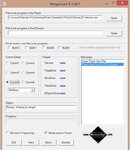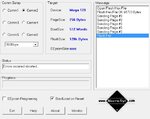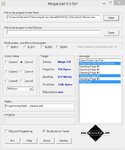fateme91
Member level 2

- Joined
- Nov 18, 2014
- Messages
- 48
- Helped
- 2
- Reputation
- 4
- Reaction score
- 2
- Trophy points
- 18
- Location
- Iran,Mashad
- Activity points
- 349
Hi
I need to work with boot loader of ATmega128.
what is cvmegaload? do u have the program ?
DO u have an example ?
I need to work with boot loader of ATmega128.
what is cvmegaload? do u have the program ?
DO u have an example ?




